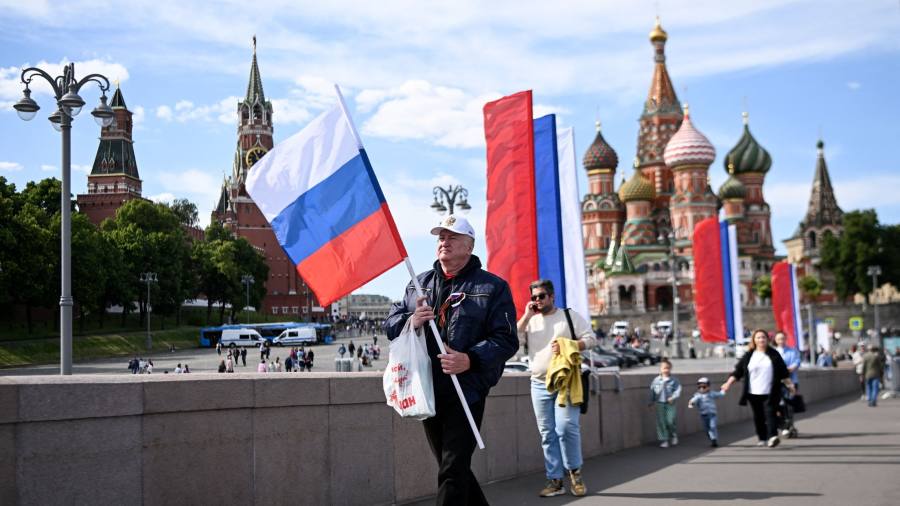Russia has unveiled a windfall tax on big companies to raise an estimated Rbs300bn ($3.6bn) from its oligarchs, as the war in Ukraine continues to stretch the Kremlin’s finances.
The proposed levy, outlined in a draft bill introduced on Tuesday, will require Russian groups making profits of more than Rbs1bn a year since 2021 to pay a one-off tax worth up to 10 per cent of the gains.
One senior cabinet official claimed the idea for the levy had come from the companies themselves, who realised they had made “gigantic” profits during the period that needed to be properly taxed.
The move is part of a series of measures to shore up the Kremlin’s coffers after falling oil revenues under western sanctions and a surge in war-related defence spending led to Russia running up a Rbs3.41tn budget deficit in the first half of this year.
Though the money will not go directly to fund President Vladimir Putin’s invasion of Ukraine, the new tax indicates the Russian state’s growing sway over big business as it consolidates control over the economy.
Russia’s largest metals, mining, and chemical companies saw off plans for a similar windfall tax in 2018, which would have raised an extra $7.5bn for social spending, after their share prices tumbled.
But first deputy prime minister Andrei Belousov, the driving force behind both initiatives, claimed Russia’s oligarchs had volunteered to surrender their profits in a patriotic gesture.
“I’ll tell you a big secret: the idea of this Rbs300bn tax came from business, not the state,” Belousov told Russian business newspaper RBC in an interview published on Tuesday.
“They are smart and well informed. They understand they have colossal excess profits for 2021 and 2022, just gigantic.”
But the plans have proved contentious among Russia’s oligarchs, who lobbied for months to water down the measure.
“I don’t understand the idea . . . If you need money, just raise taxes,” one oligarch likely to be affected by the tax told the Financial Times. “There is a feeling that [Putin] has once again outwitted everyone, including himself.”
Russia began discussing the new tax, which analysts say is likely to hit the metals and fertiliser industries hardest, earlier this year after western sanctions first began to depress the country’s oil export revenue.
State-owned Sberbank, Russia’s largest lender, will also be affected by the new tax. In April, its chief executive Herman Gref estimated the bank’s potential contribution to the windfall tax at Rbs10bn, which accounts for more than 3 per cent of the total tax take.
Though most of Russia’s oligarchs are under western sanctions, many of their industrial and agricultural conglomerates have escaped restrictions thanks to the important role they play in global supply chains.
Timur Nigmatullin, an analyst at the Russian investment company Finam, said he expected the windfall payments to be “opaque” to external observers to minimise the risk of companies being sanctioned for supporting the war.
In an apparent attempt to avoid it, finance minister Anton Siluanov said Russia would spend the extra revenue on payments for families with children — handouts that were notably scaled back in Putin’s most recent state-of-the-union address in February.
Russia is keen to tap the profits many of its commodities exporters made before the western sanctions kicked in, which helped steady Russia’s economy but have not been fully reflected in public finances.
Oil and gas exporters, whose profits account for about 45 per cent of Russia’s budget income, are already facing extra taxes to make up the shortfall. Gazprom, Russia’s gas monopoly, paid a one-off dividend of $21bn last year amid record profits and is to pay an extra Rbs1.8tn over the next three years in a new tax on its gas exports.
Read the full article here




